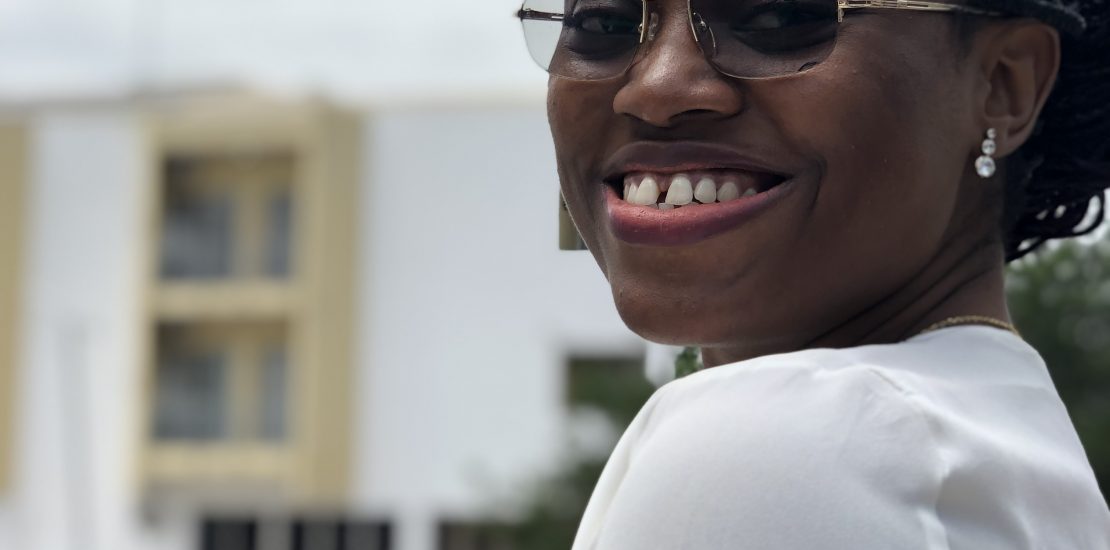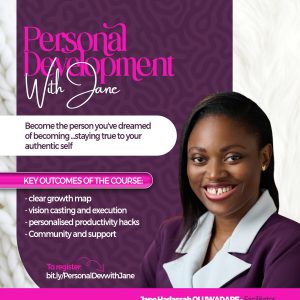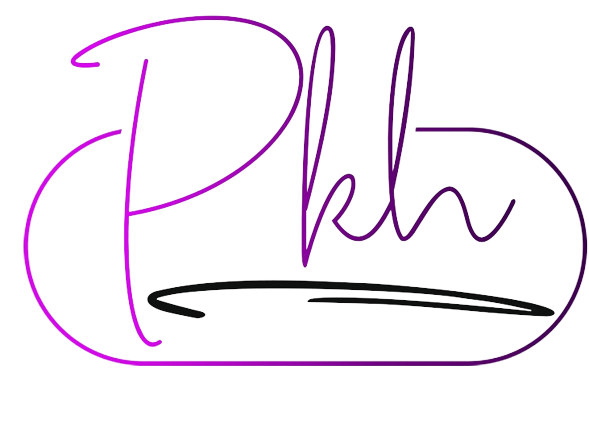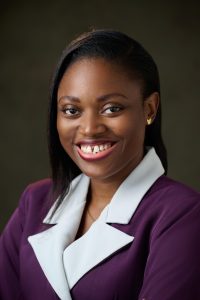- 10 February, 2023
- Posted by: Jane Oluwadare
- Categories: Jane's Thoughts, Neurodivergence, PHRONESIS Lighthouse, Productivity, Productivity at work

I first wrote this to my newsletter community in June 2021, but I thought you should get to read it too
…turning your weaknesses into strengths
It’s June. Spring is well and truly here, and I love love love to see it. The comforting pitter-patter of rain on the rooftops, the cozy warmth of duvets, the fresh scent in the air, and in this corner of the world, the erratic power supply as the power regulators dry out the electric lines after each rainfall before they can restore power (my brothers’ joke). What does spring feel like for you?
The other month, we looked at Aphantasia, and self-discovery. This month, the spotlight is on non-communicative spells and PERSONAL DEVELOPMENT. But before we hop in, there are a couple of things I also did, that I think you might be interested in, checking out:
- I sat with Eniola Disu of the Arise Table Talk, and we had a mind-blowing session on just how much the Holy Spirit can amplify your efforts and willingness to produce mind-blowing results. I talk a little bit about the work behind the birthing of Chaotic Habits, the neurodivergent community and so much more. To catch the full gist, click here
- I was with Ifeanyi Omonike on an episode of Pain to Purpose. We delved into what healing from pain/trauma looks like, specific steps you can take/lean into as you move through the process. In a no-holds-barred, free-flow session, we took off the mystery shrouding the healing journey. Interested? You should watch the replay
Okay! Let’s dive right in to:
Have you ever sat in front of your keyboard/keypad, and cried because it was so hard to put your thoughts to words?
You know what you want to say, the idea/thoughts are well formed, and you have the sense of completeness – you just don’t have the right words to use.
Or maybe you were asked a question, and the words to express the idea have disappeared from the tip of your tongue. You may even be looking right at the answer – the words are just missing. And as the pressure of “dwindling appropriate response time window” mounts (an ongoing conversation, a work mail with a response deadline, an exam or a test, an enquiry from your superior at work in a meeting, a question from a teacher in class etc.), the likelihood of being able to communicate appropriately dwindles with it.
The real life implications are sad: failed tests and quizzes, botched exams, missed deadlines, as well as some moments of coming across as incompetent, unwilling to apply yourself, or an absolute idiot…
…or some of the more painful labels: rude, arrogant, snob. Willful. Lazy.
The struggle to communicate can show up in so many ways, and impacts on our relationships in several dimensions and nuances (and at this moment, I don’t have all the words I wish for to describe the weight of the problem).
It’s sometimes a lot harder when you have a large vocabulary, because it feels like your brain is betraying you, despite putting in all of the work they said would be necessary. The input (deliberate personal development by growing your vocabulary) is not matching the output (effective communication), and it tells on a person’s confidence and self-esteem.
In April of 2021, I was in a meeting that I had been prepped for, and my CEO asked me to report on our work as a team, and I could not communicate. Brain blank, I was not comprehending the words on my screen, and I lost track of what the structure of the report should have looked like, so I could not even improvise. Meanwhile, earlier in the year (2021), I had had more non-communicative episodes than usual, including a string of non-verbal spells in a single month, and it had started to affect how I showed up at work. and so this new episode was like my brain was actively working to sabotage me.
It hurt my confidence to get my job done, and though I tried to remedy the situation after the meeting by reaching out to my direct manager, and providing the required updates (yaaay!!! brain), but it also got me thinking about the many “strengths” that do not come quite naturally. The things that are tough for me to do, but that people appreciate and praise and wish to emulate (this part usually amuses me). Half the time I want to scream about how hard it was to show up that way, in that moment, but between the societal code that dictates that you graciously accept the compliment and move on, and the fact that I am so often too exhausted by the effort to say anything else, it’s a lot easier to smile, nod and exit the spotlight.
You see, it is easy to say “xyz is hard for me”, and simply leave it at that. This is doubly true when it is a disability. But there are zones you need to access, and places you need to take your vision to, that access would not be handed to you on a silver platter, neither would the bar be lowered because of a personal disadvantage or disability (it sucks, but life is not designed to be fair).
It comes down to you to go the extra mile, and build out the bridges that position you better for the life of vision that you want to live, translating a life of purpose from an herculean task into something a tad less burdensome. And it’s not because you want to prove a point, but (to use Debola Deji-Kurunmi‘s words), because you were not born with all that you need to achieve what you need to achieve. Some of it must be acquired, some learned, some borrowed, some outsourced…
What I am I saying in a nutshell?
- Personal development does work. It helps you reduce the number of times you show up incompetent, less than excellent, or less than expected. It equips you to spot your errors/fix your lapses. It moves you from an incompetent wreck to a competent one (like Rene Brooks likes to say). Personal development raises your personal minimum performance bar and ensures that even at your worst, you are doing excellent work
- The state of your emotions would impact every single thing you do. If you’re bleeding, you would bleed over every single thing. If you are angry, the anger would smudge all of your responses. If you are hurt, it would make you view anything less than perfect through the lens of a victim etc.
- Find your hacks and build your crutches (smileys and stickers, slangs and templates, social scripts and context examples etc). Nobody would do that for you reliably and sustainably (unless you were paying them to do so, and even the best workers have human error). Leverage technology where you need to
- Focus on the progress you’ve made, not a single failure. You can get better, and prepare better, but you cannot rewite the past. The mistake most likely comes with consequences of its own, so skip the self-denigration, get to fxing it, and repairing your system, so that you can have a much better (rest of the) day/week
REFLECT:
What are your core strengths? What do you do effectively even when you are half-asleep? What are your acquired strengths? How can you hone them to better serve you and your work/vision?
What are your weaknesses? Which of them can you convert to a strength? (Pro-tip: start with the low hanging fruit)
Do you have a documented process for making this conversion? Do you know it well enough to teach it? Where are you going to attempt to apply these principles in the next 60 days?
I could go on and on, but answering these questions would be a good start for the sort of introspection that leads to growth. And as you find answers, drill down on each one, weigh it, and then ask yourself what you could do with the new information to move yourself towards the life you prefer. (Remember last month’s lesson? Action is the end goal, not just being a repository of knowledge).
For extra support in your internal work, you might want to sign up for Personal Development with Jane. It is specifically tailored to help you lean into your unique wiring and turn your weaknesses into strengths
-
 Personal Development with JaneGBP,£ 150.00.
Personal Development with JaneGBP,£ 150.00.
I hope you enjoyed this letter. If you’d like to read more on intentional growth, self-awareness and productivity, you should consider signing up for my newsletter
Was this helpful? Leave a comment, share with your circle, or read more like it
Yours in growth, development, and with a lot of love
Jane OLUWADARE


